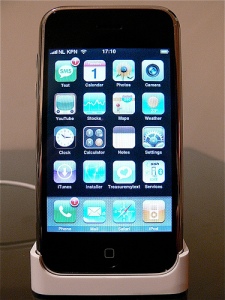 Pepsi recently apologized for its iPhone application, “Amp UP Before You Score,” in response to the backlash of criticism that greeted the application’s release.
Pepsi recently apologized for its iPhone application, “Amp UP Before You Score,” in response to the backlash of criticism that greeted the application’s release.
Twitter users are rejecting Pepsi’s apology, and many plan on boycotting Pepsi goods.
Pepsi’s iPhone application that claimed to help men “score” with women was launched by Pepsi to help promote the company’s new AMP Energy drink. It’s a “roadmap to success with your favorite kinds of women” that will “change your game and raise your expectations,” Pepsi promised in the application’s description.
The application broke women into 24 categories, from artists and aspiring actresses to businesswomen and bookworms. When the user identified the kind of woman he was trying to score, he could use the application to study a cheatsheet of things she’s into, with lists, links and some surefire opening lines.
If the guy were lucky, the application would let him keep a brag list, with names, dates and other details. The application also encouraged users to “flaunt it,” by sharing their lists with friends via e-mail, Facebook and Twitter.
To track what people were saying, Pepsi created a #pepsifail hashtag and tweeted under the name AMPwhatsnext:
“Our app tried 2 show the humorous lengths guys go 2 pick up women. We apologize if it’s in bad taste & appreciate your feedback. #pepsifail”
The apology only fueled the fire and gave Twitter users the opportunity to express their outrage at Pepsi for its application and half-hearted apology:
@AMPwhatsnext Your campaign is thoughtless and offensive despite the guise of juvenile humor to excuse it. Lame apology not accepted.
@AMPwhatsnext #pepsifail You need more than give a half-hearted apology, pull the app.
Twitter has given Pepsi the ability to receive direct feedback on how consumers feel about the iPhone application. In this case, Pepsi was able to release an apology because of all the negative feedback. Pepsi provides an example of why Twitter is a useful tool for companies to evaluate their products or initiatives.
Follow the #pepsifail hashtag on Twitter.
 Do you count? Because I sure do. This is why I am going to fill out the 2010 Census form.
Do you count? Because I sure do. This is why I am going to fill out the 2010 Census form.

 The “
The “ Pepsi recently apologized for its iPhone application, “Amp UP Before You Score,” in response to the backlash of criticism that greeted the application’s release.
Pepsi recently apologized for its iPhone application, “Amp UP Before You Score,” in response to the backlash of criticism that greeted the application’s release. The goal of this post is to give you insight into who I am and why I’m blogging.
The goal of this post is to give you insight into who I am and why I’m blogging.